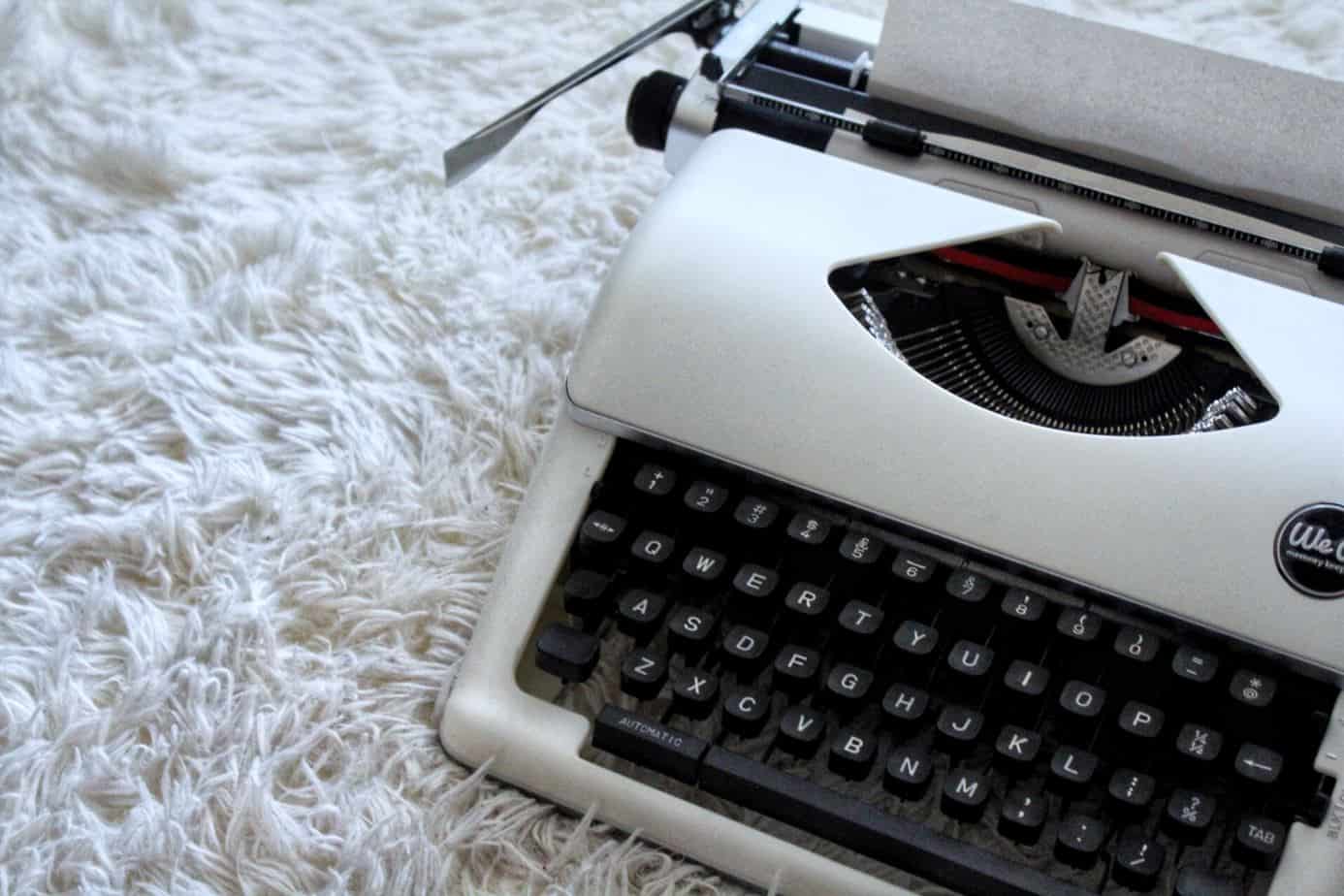Writer’s block is the monster all writers encounter at some point in their careers. Are you even a writer if, at times, you absolutely can’t write at all?! We’ve all been there, yes, even your favorite bestselling author.
Whether you’re traditionally published or have successfully published an ebook yourself or you’re still working on your first novel, writer’s block can still happen.
The good news is, it’s absolutely curable! In this article, we’ll walk you through what to do when you have writer’s block.

What To Do When You Have Writer’s BlockWhat To Do When You Have Writer’s BlockWhat To Do When You Have Writer’s Block
Not all blocks come neatly pre-packaged in the same shapes and sizes, so sometimes you have to go digging to find tools to solve yours.
Lucky for you, I’m going to stack your arms full of advice for what to do when you have writer’s block — and you’ll be back to typing up that next chapter on your keyboard.
What Is Writer’s Block?
The dictionary defines writer’s block as, simply, being unable to think of what to write or how to proceed with your writing. And that’s the crux of it for sure.
It’s being stuck. It’s looking at a blank screen while the cursor blinks in an accusatory way at you and your brain simply packs its bags and leaves. Writer’s block is frustration and tears.
And it’s very often rooted in fear.
Fear of not being good enough, fear of failure, fear of making a mistake.
Fear is not something you can eliminate from your life completely. But acknowledging it and choosing coping mechanisms or fight tactics to handle it are often key to pushing through writer’s block.
You want to be able to write fiercely, freely and with passion. A good way to start achieving that is believing in yourself.
Find The Root Of Your Block

This is the very first thing you should focus on when stuck: ask yourself WHY.
Why are you stuck? What’s the root of this problem? Out loud you’re saying, “I can’t write this chapter,” but what is the true reason? Narrow it down.
[convertkit form=942417]Common Reasons For Writer’s Block:
- Indecision: You have too many options of where to take the story next and don’t know the “right” one to choose.
- Fear: You’re worried you’re not good enough, that the story is bad, that when someone reads it they’ll laugh.
- Exhaustion: you can’t think of new scenes. You can’t imagine where your characters are going. Your mind feels blank, your imagination drained.
- Ignorance: You don’t know how to write the scene, you aren’t sure of the words to use for the description, or if you’ve captured the scenery right of a place you haven’t been to, or if you can properly handle a character in an era you never lived.
- Distraction: You can’t focus on your writing, you’re online instead. You’re researching 17th-century spoons but somehow ended up watching YouTube clips about ducks in hats.

Once you’ve got the “reason” nailed down, you can start tackling it head-on.
When people give out blanket advice for what to do when you have writer’s block, they often fail to acknowledge there are reasons why it happens.
I never trust anyone who says writer’s block doesn’t exist. It does. It’s just an umbrella term for underlying problems in our thinking.
“Take a break and go for a walk!” is excellent advice, but if your block runs deeper than that, it’s better to isolate the issue and tackle it head-on.
How To Get Over Writer’s Block?

Now that you’ve pinpointed the source of your block, start an action plan to fix it.
There’s that famous Jack London quote that says: “You can’t wait for inspiration. You have to go after it with a club.” This is true for everything in the writer’s life.
If you want to write a novel or pursue publication or learn how to edit or break through a creative block
- Fixing Indecision: Start plotting! Write lists of “what ifs” and create flow charts to follow potential plot options. Sometimes writing out your issues with pen and paper (instead of typing) will spark a fresh new idea. You can also talk it out with a willing friend or family member or writing partner. Sometimes voicing the problem ends in you talking yourself through it. Other times a friend simply asks an innocent “what if this happened?” question and your inspiration will explode to life. You just needed a nudge.
- Fear: There is always something to be anxious over in the author’s life, so there’s no “fix it forever” cure to present here. But give yourself a stern talking to. Fill your life with positive examples and voices. Put inspiring quotes from other writers or books on your walls. I save encouraging quotes from readers to look at when I feel like I don’t know how to write! Be honest with yourself about your fears and choose to dismantle them. They can still always be there, but they don’t have to be in control.
- Exhaustion: Don’t forget to keep your “creative well” refueled! It’s easy to forget that outputting creativity is also expending brainpower and energy. Just because you love it, doesn’t mean it isn’t wearing you down. Listen to music. Read lots of books, all genres, and styles. Watch movies (yes, this CAN help!) and analyze their plot structuring. Have life experiences of your own. Inspiration is often found in everyday life. So if you’re constantly boxed up in your room, panicking over a blank screen, maybe… do not. Go outside and do things too. Just don’t let any of this lead to procrastination. Be mindful!
- Ignorance: Research is super important for writers and often we get stuck because we feel we don’t know enough. Refilling the creative well (as explained above) can help with this, but also good ol’ fashion book research or Googling is important. Again, don’t use this to procrastinate. Maybe give yourself 15 minutes of research time before you start a writing session.
- Distraction: Sometimes you have to turn off the WiFi. You can also use it as a bribe: “Hey if you write 500 words = you can check Twitter for 5 minutes.” The biggest thing here is: if you’re blocked, you need to actively work on it. Getting frustrated and then scrolling Instagram won’t fix the block.
More Advice For Writer’s Block

There are still plenty of ways to kick start you into thinking in different directions and breaking your block. If you’re looking for more advice for writer’s block, try the following:
- Get up and get a glass of water. Sometimes just jolting your surroundings will help your brain think through the block. Also, keep hydrated. Your brain loves that.
- Change up your surroundings. Change is SO useful to jolt your brain into thinking in fresh patterns. Go to a coffee shop, write in a quiet room, or outside your office, or at a park. Change your playlist, or write without sound.
- Skip the scene and keep writing. Some scenes just need extra mulling time. If you’re writing a first draft, especially, don’t lose momentum: instead, skip the scene and leave a note to go back to it.
- Get active! If your brain is stagnating, put your body into action. Go for a walk or a swim. Give your brain a chance to relax, but also think through your plot problem while you exercise. Scientific research acknowledges humans think better after they walk.
- Change how you’re writing. Again this is useful to jolt your brain out of its ruts. Switch up your font. Yes, try using comic sans! Rumors are it makes you write faster. Change your background color. Use pen and paper, not your laptop. Sit on the floor. Switch writing programs, maybe use Google Docs instead of Word, or try Scrivener.
- Write something for fun. I’m not saying abandon the project that’s defeating you. But lay it aside for a day or a week, if you can, and let yourself relax into something maybe fun or silly that just gets you back into the flow of writing.
- Take a break. This is especially important if you’re creatively exhausted. Sometimes a good night’s sleep or a week away from the keyboard is just what you need.
Do You Have Writer’s Block? Write Anyway
This is the tough cookie to take! I, too, want to just melt onto the carpet in a boneless heap of defeat (probably moaning “my book
Sometimes no amount of walks or glasses of water will take away the problem and your mind will feel so glued shut that you suspect all words have been stolen from you forever.
Try you sitting down and writing anyway.
Sheer willpower is not to be underestimated! The discipline of writing even when you don’t feel like it is an invaluable skill-set to learn. Sometimes you do have to show up to work when you don’t feel one hundred percent well.
Writing often gets better the more you do. Fight for those first 100 sticky and ugly words… Then your momentum will build and you’ll find you’ve thought of more words to type.
Writer’s block has no chance of defeating you when your toolkit is full of ways to combat it.
But seriously, go drink a glass of water. You need one.
Enjoyed This Article? You May Also Like:
- The Best Self-Help Books to Read in 2022
- How Reading Before Bed Helps You Fall Asleep
- How To Write a Memoir
About the Author
CG Drews is a YA book blogger with the goal to read every book in existence. She’s aiming for immortality for this. When not reading, she writes novels and blogs at paperfury.com.



